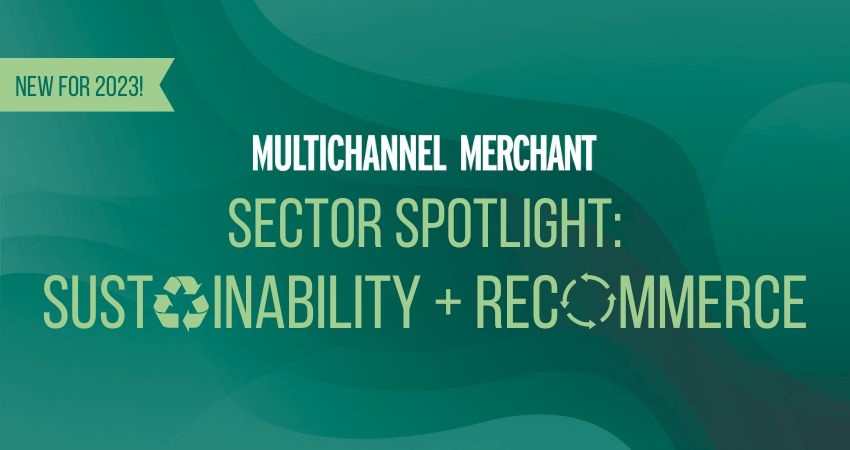Multichannel Merchant has launched the first of its Sector Spotlights, which will feature weekly content focused on sustainability and recommerce, helping retail and ecommerce executives gain a better understanding of these important, related trends. Future Spotlights in Q3 and Q4 will focus on returns and demand forecasting, respectively.
The Q2 Sector Spotlight on sustainability and recommerce includes an overview of data and results from a new Retail Systems Research study examining the consumer mindset in 2023. “Retailers’ focus on sustainability needs to reflect consumer attitudes,” said Brian Kilcourse, managing partner at RSR Research.
A new Multichannel Merchant webinar featuring Kilcourse provides a comprehensive snapshot of what consumers are thinking and how leading retailers are responding to their expectations. You can access it by clicking here.
The fact that sustainability and recommerce initiatives are top of mind for leading brands was clearly evident at last week’s packed-out Shoptalk 2023 conference in Las Vegas. Here are a few of many examples:
- Colgate-Palmolive has focused on eliminating plastic waste and designing more sustainable products. “We’ve been on this sustainability journey for two decades,” said Ann Tracy, the company’s chief sustainability officer. She added the oldest consumer goods company in the U.S. follows a “pilot, scale and optimize” approach.
- Bianca Gates, co-founder and CEO of woman’s shoe brand Birdies, said she believes sustainability should be measured on a spectrum. Admittedly, Gates said it wasn’t at the forefront when Birdies launched in 2015, using more decorative, elaborate packaging. Over the past year, the brand developed new packaging which sheds the external shipping box. The company needed to reset customer expectations after a bit of blowback from shoppers who missed the more visually appealing, decorative boxes. Gates said the brand was able to win them over by communicating the benefits of sustainable packaging.
- Becca Meinz, Vice President of End-to-End Supply Chain Strategy for Best Buy, said returns cost retailers an estimated $816 billion in 2022. While consumer expectations have traditionally been high, she said, retailers have been guiding them toward more eco-friendly, cost-reducing options, including store drop-off and charging for return shipping. For Best Buy, a combination of enhanced customer support, vendor partnerships and internal alignment on sustainability initiatives go into its returns approach. The company just launched a mail-in recycling program for old electronics, but it costs $23 or $30 per box.
- Demand is soaring on the recommerce front. Anthony Marino, president of online consignment shop thredUP, said it’s projected that one in five items in customers’ closets will be secondhand by 2031. “There is a shift from stigma to status for upcycled goods,” Marino said. To underscore this point, he added that the apparel resale market is growing 16 times faster than retail.
- For many brands, the focus will remain on the bottom line. “The unit economics have to add up,” said Dave Hayne, president of URBN’s new clothing rental service Nuuly, about the company’s investment in the sustainable offering. “If we didn’t see a path to profitability, we wouldn’t have done it.”
The common narrative shared by all of the leading brands on stage last week: sustainability and recommerce initiatives can be complex, but the tangible rewards are there. If you’re a retailer or brand looking to reap the growing benefits of this strategic approach, be sure to bookmark our Sector Spotlights page here to stay on top of the latest industry trends and developments.

